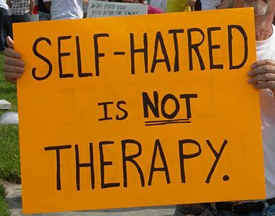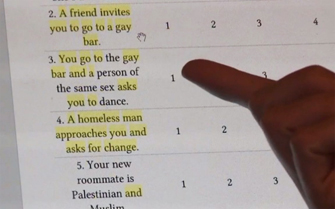South Carolina lawmakers sneak anti-gay adoption provision into bill
 South Carolina lawmakers have inserted a little-publicized amendment into an appropriations bill to allow adoption agencies that receive taxpayer money to discriminate against same-sex couples and other prospective parents.
South Carolina lawmakers have inserted a little-publicized amendment into an appropriations bill to allow adoption agencies that receive taxpayer money to discriminate against same-sex couples and other prospective parents.
The proviso, inserted into a nearly 500-page bill, allows adoption and foster care agencies to refuse to place children with any family to which the agency, or an employee of the agency, objects, based on a “sincerely-held religious belief or moral conviction.”
via Metro Weekly
Opponents of the provision note that the “religious belief” or “moral conviction” cited by any agency won’t just affect LGBTQ couples, but could allow agencies to refuse to place children with interfaith couples, non-Christian couples, and single parents.
If approved, the provision would make South Carolina the 10th state in the nation to prioritize the beliefs of a child placement agency over what’s in the child’s best interest under the guise of religion. North Dakota, South Dakota, Kansas, Oklahoma, Texas, Alabama, Mississippi, Michigan, and Virginia have similar laws in place.
“With one insidious paragraph in a 500-page bill, South Carolina lawmakers are creating a license to discriminate with taxpayer funds against qualified, loving families looking to care for children in need,” Marty Rouse, the national field director for the Human Rights Campaign, said in a statement. “This hastily added provision does nothing to improve the outcomes for children in care, but only shrinks the pool of prospective parents in a blatant attempt to discriminate against LGBTQ South Carolinians. It’s not too late for the governor to fix the state legislature’s mistake and veto this dangerous measure.”
Opponents of the amendment note that the biggest barrier to placing children with foster or adoptive parents is a lack of qualified prospective parents willing to open their homes to children in state care. They argue that the provision only serves to limit the already small pool of willing and able parents.



